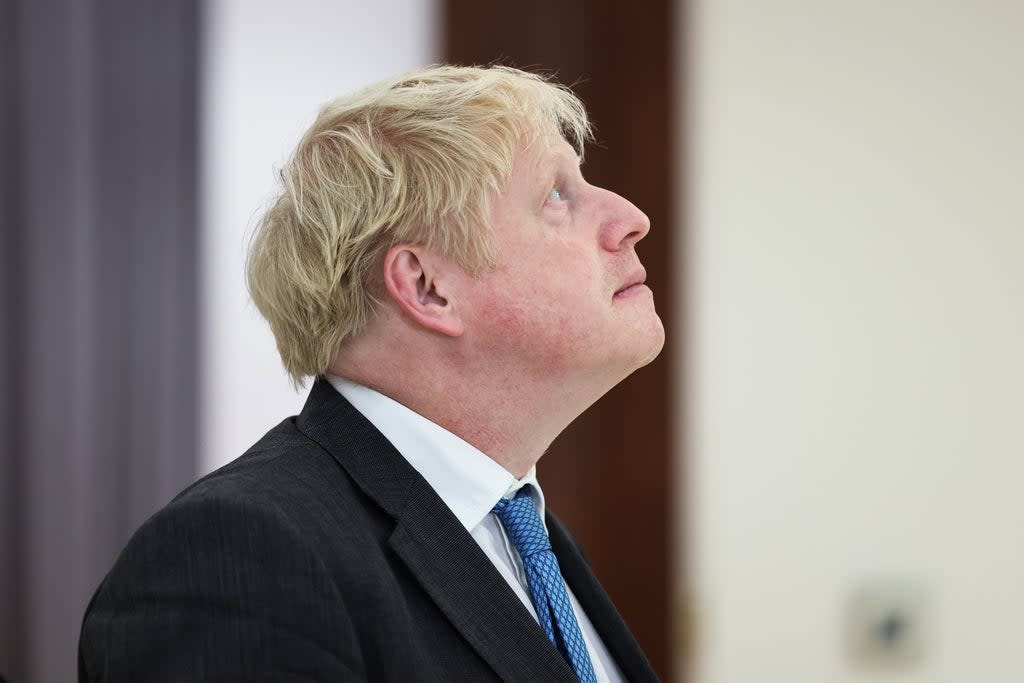Boris Johnson refuses to say if he could live on Universal Credit

- Oops!Something went wrong.Please try again later.
Boris Johnson has refused to say if he could live on £118 a week, the new level of Universal Credit after it is cut by £20 next month.
The prime minister, who is currently paid £161,000 a year and previously earned £275,000 on top of his MP’s salary for writing a weekly Daily Telegraph column, did not answer journalists’ questions about if he could manage on the lower sum.
Universal Credit – the main benefit payment for people of working age and claimed by 5.8m people across England, Scotland and Wales – was increased by £20 a week at the start of the Covid pandemic.
Despite a furious campaign to keep the uplift and growing concerns among Conservative MPs, the government still plans to abolish the £20 increase on 6 October.
Asked if £118 would be enough money for him to survive on, Mr Johnson said: “I have every sympathy for people who are finding it tough, I really, really do – but we have to recognise that in order to maintain the Covid uplift you’ve got to find another five to six billion in tax.
“That has got to come out of some people’s pockets.”
Retaining the £20 Covid uplift indefinitely would cost the Treasury about £6bn a year, something the Chancellor Rishi Sunak has refused to contemplate long-term.
But in the face of stinging criticism, ministers have been mulling a partial climbdown on the benefit cut by allowing those claiming Universal Credit to keep more of their part-time earnings.
The taper rate – the amount a claimant loses for every extra pound they earn – would be reduced from 63p to 60p, if the Treasury agrees the move.
But Mr Johnson continued to insist his government wanted to see people come off benefits entirely and into full-time work.
“Then I would just point out that the best solution is to continue to invest in people’s skills, to make sure that they are getting the type of jobs that reward their hard work – and you’re starting to see that, you’re starting to see wages go up, and that’s what we want to see,” he said.
“Wages are now rising faster than they have been for a long time, and the philosophy of this government is to try to deliver a high-wage, high-skill economy in which we invest in people, we invest in capital, we encourage businesses to put their profits back into people, back into the capital of the business, in order to drive productivity gain – and if you look at the UK since 2008, you look at our companies, they’ve been paying very low wages and they’ve been not investing, and productivity has fallen.”
Read More
Reshuffle in full: Who is out and who has been promoted?
Boris Johnson flexes muscles with cabinet shake-up for post-Covid era
PM won’t say how Universal Credit claimants can recoup lost £20-a-week

